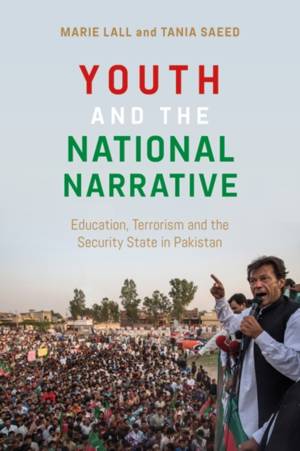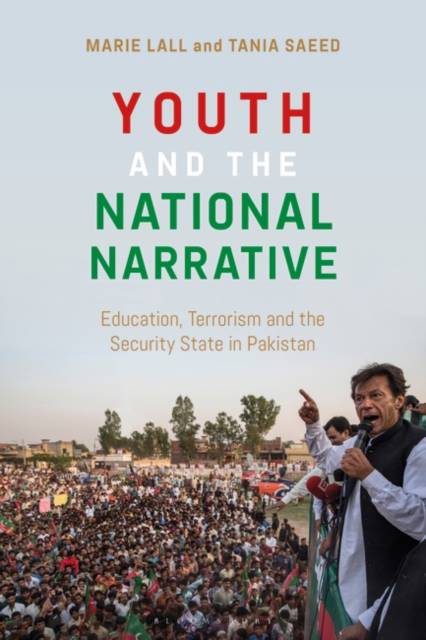
Je cadeautjes zeker op tijd in huis hebben voor de feestdagen? Kom langs in onze winkels en vind het perfecte geschenk!
- Afhalen na 1 uur in een winkel met voorraad
- Gratis thuislevering in België vanaf € 30
- Ruim aanbod met 7 miljoen producten
Je cadeautjes zeker op tijd in huis hebben voor de feestdagen? Kom langs in onze winkels en vind het perfecte geschenk!
- Afhalen na 1 uur in een winkel met voorraad
- Gratis thuislevering in België vanaf € 30
- Ruim aanbod met 7 miljoen producten
Zoeken
Youth and the National Narrative Education, Terrorism and the Security State in Pakistan
Education, Terrorism and the Security State in Pakistan
Marie Lall, Tania Saeed
Hardcover | Engels
€ 271,45
+ 542 punten
Omschrijving
The role of the security establishment in Pakistan has been strengthened in a post-Musharraf era as social institutions are increasingly drawn into the security agenda. Pakistan's problems are often explained through the lens of ethnic or religious differences, the tense relationship between democracy and the Pakistan military, or geopolitics and terrorism, without taking into account young citizens' role in questioning the state and the role of the education system.
Based on new research and interviews with more than 1900 Pakistanis aged 16-28 the authors examine young people's understanding of citizenship, political participation, the state and terrorism in post-Musharraf Pakistan. The authors explore the relationship between the youth and the security state, highlighting how the educational institutions, social media, political activism and the entire nature of the social contract in Pakistan has been increasingly securitized. The focus is on the voices of young Pakistanis, their views on state accountability (or lack thereof), political literacy and participation, and the continued problem of terrorism that is transforming their views of both their country and the world today. With 67% of the country's population under the age of 30, this book is a unique window into how Pakistan is likely to evolve in the next couple of decades.
Based on new research and interviews with more than 1900 Pakistanis aged 16-28 the authors examine young people's understanding of citizenship, political participation, the state and terrorism in post-Musharraf Pakistan. The authors explore the relationship between the youth and the security state, highlighting how the educational institutions, social media, political activism and the entire nature of the social contract in Pakistan has been increasingly securitized. The focus is on the voices of young Pakistanis, their views on state accountability (or lack thereof), political literacy and participation, and the continued problem of terrorism that is transforming their views of both their country and the world today. With 67% of the country's population under the age of 30, this book is a unique window into how Pakistan is likely to evolve in the next couple of decades.
Specificaties
Betrokkenen
- Auteur(s):
- Uitgeverij:
Inhoud
- Aantal bladzijden:
- 224
- Taal:
- Engels
Eigenschappen
- Productcode (EAN):
- 9781350112193
- Verschijningsdatum:
- 28/11/2019
- Uitvoering:
- Hardcover
- Formaat:
- Genaaid
- Afmetingen:
- 160 mm x 236 mm
- Gewicht:
- 439 g

Alleen bij Standaard Boekhandel
+ 542 punten op je klantenkaart van Standaard Boekhandel
Beoordelingen
We publiceren alleen reviews die voldoen aan de voorwaarden voor reviews. Bekijk onze voorwaarden voor reviews.









